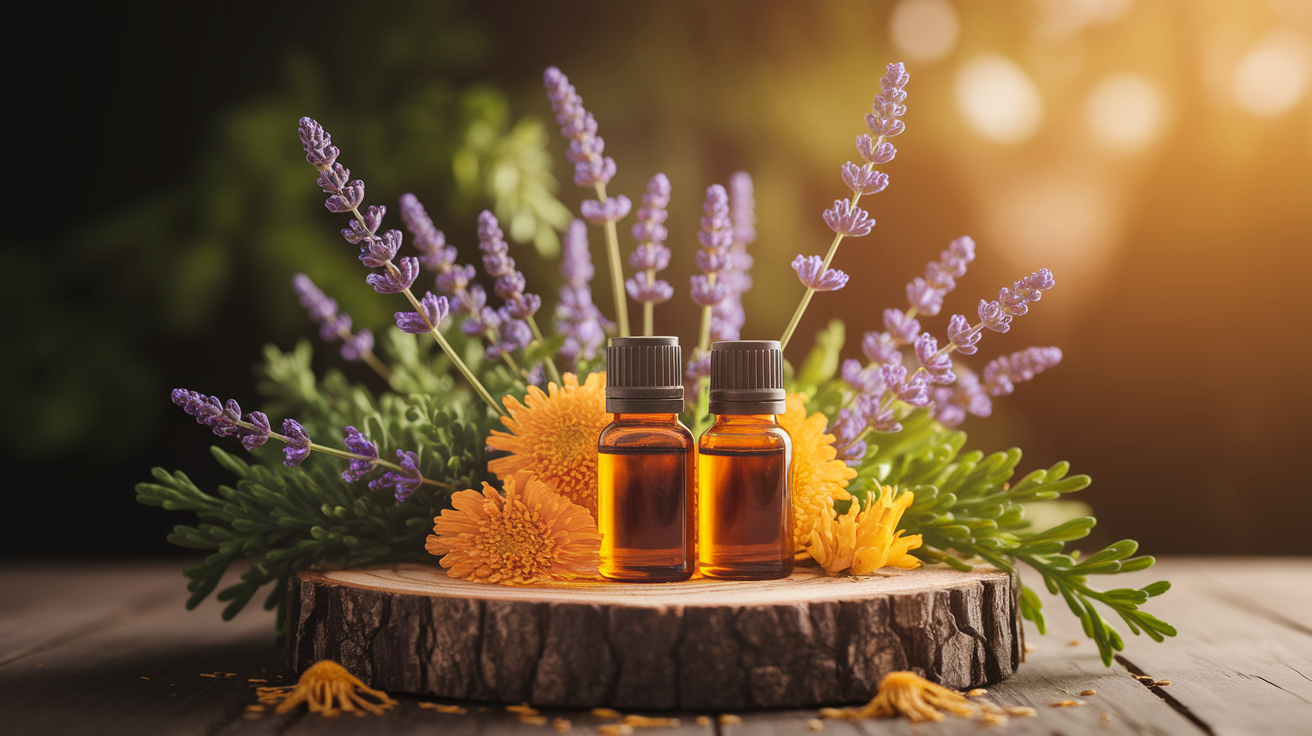Essential oils have been used for centuries for their medicinal properties, and some of them can help improve breathing and support respiratory health. Here are some essential oils that are good for breathing:
- Eucalyptus Oil: Eucalyptus oil contains a compound called eucalyptol or cineole, which has antimicrobial effects and may help reduce inflammation, relieve pain, and ease muscle tension[1][2]. It can be used to calm a cough and improve breathing[1].
- Peppermint Oil: Peppermint oil contains menthol, which can soothe or numb a scratchy throat and help relax the muscles of the windpipe[1]. It may be helpful in easing breathing in people with coughs[1].
- Rosemary Oil: Like eucalyptus, rosemary oil contains cineole, which may help break up mucus and reduce inflammation[1]. It is often used in natural care products for respiratory conditions[1].
- Frankincense Oil: Derived from the trees of the genus Boswellia, frankincense oil has traditionally been used to treat coughs, catarrh, bronchitis, and asthma[1].
- Oregano Oil: Oregano essential oil contains a potent compound called carvacrol, which has antimicrobial properties and may help fight off viruses and bacteria that cause coughs[1].
- Thyme Oil: Thyme essential oil also contains carvacrol and may be helpful in eliminating or protecting against viruses and bacteria[1].
- Tea Tree Oil: Tea tree oil can inhibit the growth of bad bacteria that cause sinus infections and respiratory issues[1]. Inhaling tea tree oil may help ease the effects of a cough[1].
These essential oils can be used in various ways, such as inhalation, diffusion, or topical application, to support respiratory health. However, it is important to note that essential oils should not replace medical treatments or medications prescribed by your healthcare provider. Always consult a medical professional before using essential oils, especially if you have a pre-existing condition.
A Deeper Look into Essential Oils
Essential oils are concentrated plant extracts that retain the natural smell and flavor, or “essence,” of their source. They are obtained through distillation (via steam and/or water) or mechanical methods, such as cold pressing. Once the aromatic chemicals have been extracted, they are combined with a carrier oil to create a product that’s ready for use[1].
The use of essential oils is not a new concept. In fact, it dates back to ancient times, with references found in the oldest known medical literature, the Ebers Papyrus, dating to the 16th century BC. Essential oils were used in the embalming process, for religious ceremonies, for beauty care, and for food preparation. They were also used medicinally to kill bacteria, fungi, and viruses and to combat physical and mental illness[1].
Today, essential oils are used in aromatherapy, a complementary therapy designed to aid various health problems such as anxiety, depression, infections, pain, and insomnia, among others. Aromatherapy can be offered as a complementary therapy in hospitals, pain clinics, and hospices[1].
The Science Behind Essential Oils and Breathing
The reason why some essential oils are beneficial for breathing lies in their chemical composition. Essential oils are complex mixtures of volatile compounds produced by the plant as secondary metabolites. Among these compounds, terpenes and terpenoids, phenylpropanoids, and short-chain aliphatic derivatives are the most common[1].
These compounds have various biological activities, including antimicrobial, anti-inflammatory, and mucolytic actions, which can help improve respiratory function. For instance, eucalyptol, a monoterpenoid found in eucalyptus oil, has been shown to reduce airway inflammation and mucus hypersecretion in animal models, making it potentially beneficial for conditions such as asthma and chronic obstructive pulmonary disease (COPD)[1].
Safety and Precautions
While essential oils can be beneficial, they must be used correctly and safely. Some essential oils can be toxic if ingested, while others can cause skin irritation or allergic reactions when applied topically. Therefore, it’s important to follow the manufacturer’s instructions and to consult with a healthcare provider before using essential oils, especially for people with pre-existing conditions, pregnant women, and children[1].
In conclusion, essential oils can be a valuable addition to your wellness routine, offering a natural way to support respiratory health. However, they should not replace conventional medical treatments. Always consult with a healthcare provider to ensure you’re using essential oils safely and effectively.
What are the best essential oils for respiratory health?
Certain essential oils may help to support healthy respiratory function. Lavender essential oil is known for its soothing properties and may help ease breathing difficulties. Eucalyptus essential oil can help clear nasal congestion. Peppermint essential oil may also help open up airways in the lungs. Other beneficial oils include tea tree, cinnamon, lemon, and geranium. Diffusing a blend of these oils can help improve respiratory symptoms.
How can essential oils be used to treat respiratory tract infections?
Many essential oils have antimicrobial properties that may help treat infections in the respiratory tract. Oils like eucalyptus, peppermint, lavender, and tea tree can help fight germs that cause respiratory problems. Diffusing these oils or using peppermint oil topically on the chest may help ease infections. Inhalation of essential oils may also help suppress allergic airway inflammation.
What essential oils are best for COPD patients?
Eucalyptus and peppermint essential oils may help COPD patients by opening up airways and making breathing easier. The anti-inflammatory properties in lavender essential oil can also help reduce inflammation in lung tissue. Diffusing a blend of eucalyptus, peppermint, and lavender may provide respiratory support for those with chronic obstructive pulmonary disease.
How can essential oils improve lung health?
Inhalation of essential oils can help improve lung health and function. Eucalyptus oil in particular may help dissolve mucus and improve airflow. Peppermint and cinnamon oils can also help clear nasal passages and support healthy breathing. Diffusing lemon, lavender, or tea tree oil can help fight inflammation in the lungs. Using essential oils may help improve respiratory symptoms and support overall lung health.
What essential oils are good for sore throat and cough?
Peppermint, eucalyptus, and lemon essential oils can help soothe a sore throat. The anti-inflammatory properties in lavender oil may also help reduce throat swelling and irritation. For coughs, eucalyptus, thyme, cinnamon, and tea tree oils can help loosen mucus and calm coughs. Diffusing any of these oils can provide respiratory relief for sore throats and coughs.
References
- Essential Oils for Respiratory Health – Pathways Wellness Program, LLC. (2019, August 5). Retrieved from https://pathwayswellnessprogram.com/essential-oils-for-respiratory-health/
- Essential oils in the treatment of respiratory tract diseases highlighting their role in bacterial infections and their anti‐inflammatory action: a review – PMC – NCBI. (2023, October 3). Retrieved from https://www.ncbi.nlm.nih.gov/pmc/articles/PMC7163989/













